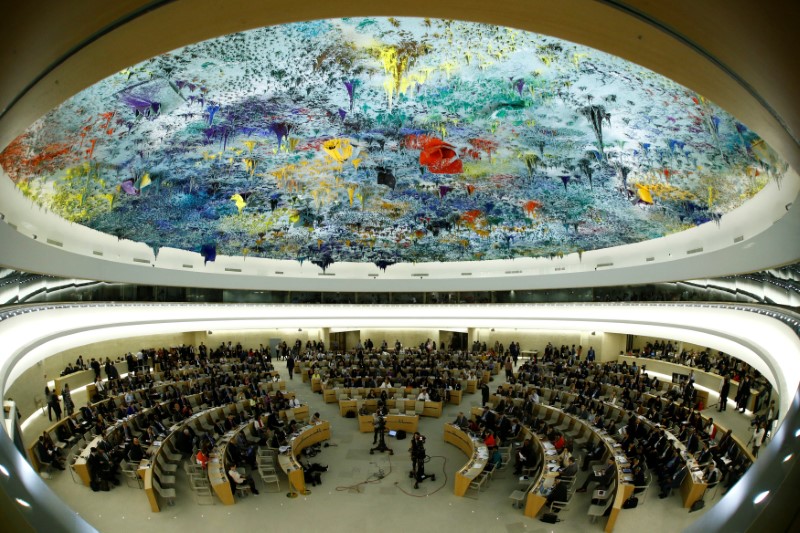BEIJING (Reuters) - The West's monopoly on rights has been dealt a blow by the United Nations' decision to adopt a China-led resolution saying development promotes human rights, an editorial in the official paper of China's ruling Communist Party said on Saturday.
The UN Human Rights Council on Thursday adopted a China-led resolution on "The Contribution of Development to the Enjoyment of All Human Rights, the first time it had adopted a resolution on development issues, the official Xinhua news agency reported.
The resolution was co-sponsored by more than 70 countries, Xinhua reported.
"For a long time, the international rights process and conversation has been monopolized by Western governments," the People's Daily said in a Saturday editorial.
"Some people from the West often use the pretense of human rights to export their own values and even to use them to meddle in other countries' internal affairs," it added.
"The inclusion of the concept of 'development promoting human rights' into the international human rights system signifies a major shift in the global human rights conversation," the paper said.
China has long faced criticism over its poor human rights record from international bodies and Western governments, which speak out against stifling of civil society, as well as censorship and detention of rights lawyers and activists.
Beijing regularly rejects foreign criticism, saying that the definition of rights used by the West is too narrow and ignores the effort China has made on poverty alleviation and securing the rights to education and freedom from hunger.
In the face of regular pressure from the U.N. rights council, China has sought to gain the support of other U.N. members, often developing nations, on rights issues to redress what it sees as shortfalls in the current system.
Last week, Greece blocked a European Union statement to the council criticizing China's human rights record, a decision EU diplomats said undermined efforts to confront Beijing's latest crackdown on dissent.
China has previously refused to allow in some U.N.-appointed envoys and others who were allowed to visit have complained of government interference with their work, though the government pledged to cooperate with the body in September last year.
